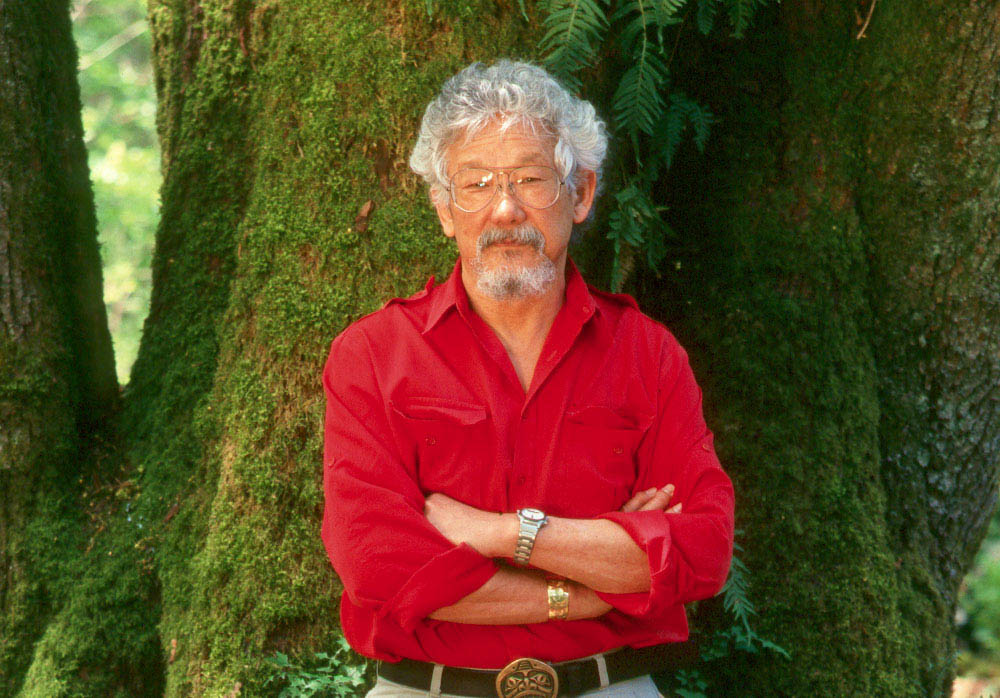Nine years ago, the David Suzuki Foundation launched the Blue Dot Movement. Its goal was to enshrine the right to a healthy environment in Canadian law. It started with a cross-country tour featuring Feist, Neil Young, the Barenaked Ladies, Margaret Atwood, Kinnie Starr, Raine Maida, Grimes, Danny Michel, Stephen Lewis, Bruce Cockburn, Robert Bateman, Shane Koyczan and many more.
The multi-pronged efforts over the years are finally starting to pay off. With recent passage of Bill S-5 to modernize the Canadian Environmental Protection Act, the right of all people in Canada to a healthy environment is now recognized in law. Although the ultimate goal was to have this right enshrined in the Canadian Charter of Rights and Freedoms, getting it into this law is a great start.
The Environmental Protection Act hasn’t been updated since 1999, and over that time, much has changed regarding environmental issues and our understanding of them, so the amendments are long overdue.
Under the revised act, the federal government will have the duty to protect the right to a healthy environment and uphold the principles of environmental justice. The act also includes requirements to consider cumulative effects on environmental and human health and on vulnerable populations. And it updates regulations around control of toxic substances and dangerous chemicals, including ensuring that priority is given to prohibiting the most hazardous substances.
When the Blue Dot Tour hit the road in 2014, more than half the world’s nations recognized the legal right to healthy environment. It was astounding that Canada, a country known for its spectacular wilderness and abundant nature, was not among them. Now more than three-quarters of countries recognize and protect this right!
As the movement gained momentum, an ever-increasing number of municipalities adopted environmental rights declarations, many members of Parliament signed pledges supporting them, and people, organizations and communities joined the effort.
The movement also inspired the Foundation’s Future Ground Network and Réseau Demain le Québec, two growing online organizing hubs (one English, one French) that support local groups taking action in their communities to secure healthier, more viable futures in the areas of climate justice, biodiversity, waste reduction and sustainable systems.
It shouldn’t be controversial to recognize that we can’t live well without clean air and water, toxic-free food and the numerous services that diverse ecosystems provide. But Canada and the world still face increasing environmental crises, which often most affect marginalized people.
Here, we have dozens of drinking water advisories in effect, most in Indigenous communities. Air quality often reaches dangerous levels, and the oil and mining industries continue to poison land, air and water — again, most often near Indigenous communities. Environmental hazards contribute to tens of thousands of premature deaths in Canada every year, and pollution costs us more than $100 billion a year.
Although modernizing the Environmental Protection Act won’t resolve all those problems, it will at least set us on a path to government responsibility. But more needs to be done.
The government should remove barriers that prevent citizens from using legal methods to hold polluters accountable when they violate the act and its regulations. We need enforceable national air quality standards. Regulations around labelling of potentially hazardous substances in consumer products must be strengthened. Government must also close loopholes regarding ocean dumping, and it must ensure that Indigenous communities get the same level of environmental protection as other communities in Canada. We must also restrict plastic waste exports.
Another important step will be for government to pass Bill S-226 — “an act respecting the development of a national strategy to assess, prevent and address environmental racism and to advance environmental justice.” This is critical, because social and environmental justice are inextricably linked. Solutions to the climate and biodiversity crises must be grounded in equity, access to justice and fulfilment of human rights.
Long overdue modernization of Canada’s Environmental Protection Act is a positive first step and shows what we can accomplish when we work together.
As David Boyd, UN Special Rapporteur on human rights and environment and long-time Blue Dot spokesperson, said, “It’s a terrific day when Canada recognizes the right to a healthy environment and will be an even better day when governments respect, protect and fulfil everyone’s right to a healthy environment!”
Let’s keep moving!
David Suzuki is a scientist, broadcaster, author and co-founder of the David Suzuki Foundation. Written with contributions from David Suzuki Foundation Senior Writer and Editor Ian Hanington.
Learn more at davidsuzuki.org.







